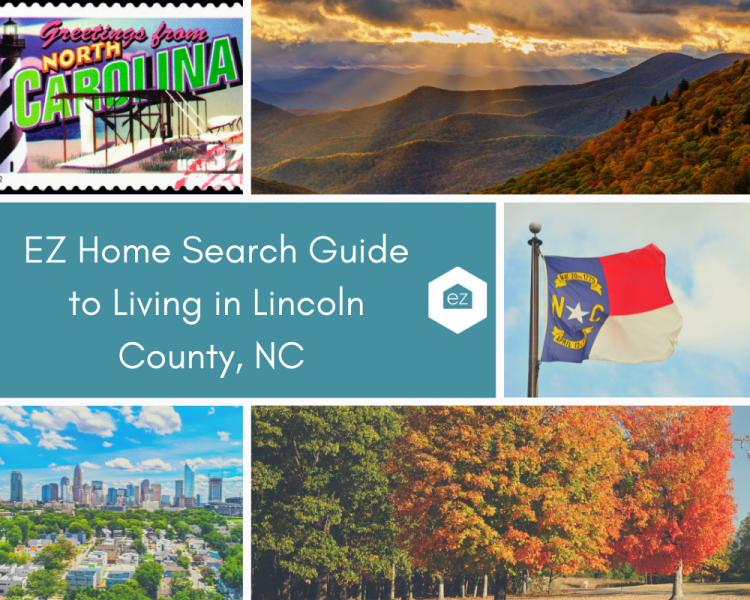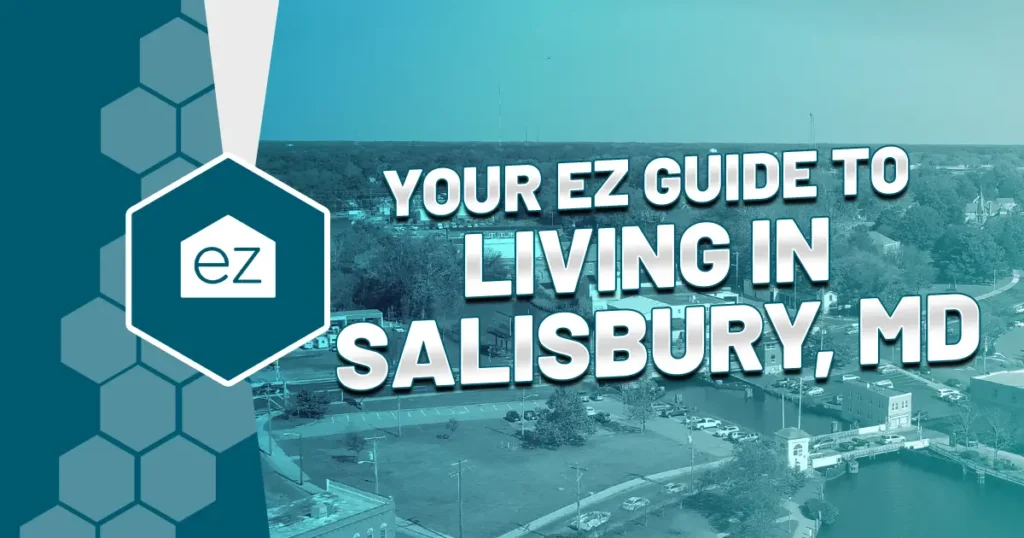EZ Home Search Guide to Living in Lincoln County, NC
EZ Home Search Guide to Living in Lincoln County, NC
Find lots of hometown pride in Lincoln County, North Carolina. It’s been called one of the friendliest corners in the Charlotte region. Here, families and friends gather on the ball field, order ice cream at the local parlor, and meet up at the local town festival. Life is about spending time together making memories.
The people here have a strong sense of place and purpose. Small-town values are abundant in this county between Charlotte and the Appalachian Mountains. Explore the Lincoln County guide to learn about its quality of life.
About Lincoln County
The majestic Blue Ridge Mountains rise on the western horizon while the expansive Lake Norman lies to the east. Between them is Lincoln County, a land of rolling terrain broken up by many creeks and streams. The farmland is rich and abundant.
Modern Lincoln County is roughly shaped like a long rectangle measuring 30 miles long and 10 miles wide. Cleveland County is west, Gaston County to the south, and Catawba County to the north. The Catawba River forms its eastern boundary.
Its location places residents about an hour from Asheville. Charlotte lies about 20 miles to the southeast. It is easy to access these cities and their urban amenities by jumping on I-40 or I-85.
Living in Lincoln County costs less than the United States average. According to the Best Places Cost of Living Index, Lincoln County has an overall score of 93.4. The US average is 100. The most expensive cost of living was transportation, which had a score of 102.5. The least costly average is housing, which scored 80.5.
Residents enjoy a mild climate with annual average temperatures ranging from 74F to 43F. The monthly average temperature in January is 48F and 87F in July. The county receives about 38 inches of rain in an average year.
Lincoln County History
The Catawba and Cherokee peoples originally inhabited the region. Early European settlers came from Pennsylvania, Maryland, Virginia, and South Carolina and were predominantly German or Scots-Irish. They came to take advantage of the rich farmland.
The county itself was established in 1779 and was one of the largest areas in the state. Over the years, sections have been removed to form Cleveland, Gaston, and Catawba County.
Lincoln County was named in honor of Major General Benjamin Lincoln, the commander of the Southern Department of the Continental Army during the American Revolution. He never visited or had any links to the area.
Action took place during the Revolutionary War at the Battle of Ramsour’s Mill. The skirmish took place in June 1780. British loyalists began recruiting forces and assembling at Ramsour’s Mill on the north side of present-day Lincolnton. Upon hearing the news, American Revolutionary forces from Rowan, Mecklenburg, and Lincoln counties set out for the camp. They launched an attack on the unsuspecting loyalists.
The rout impacted support for the British war efforts in the region. The dead were buried in a mass grave on a local hill. They are still honored at the annual Independence Day celebrations.
County seat Lincolnton is the second oldest town west of the Catawba River. It was incorporated in 1785.
In its early days, Lincoln County was a leader in iron production. There were ten forges and four furnaces producing the essential metal. It’s also home to the first textile mill built in the south, the Schenck-Warlick Mill.
Lincoln County Cities and Areas
Lincolnton, the county seat, is approximately in the county center. It is known as a charming city located northwest of Charlotte. From here, residents can easily take day trips to Hickory for furniture shopping, explore the Blue Ridge Mountains around Blowing Rock, and explore the other towns in the North Carolina Piedmont region.
Lincoln County has only one other town, Maiden, which it shares with Catawba County. Otherwise, Lincoln is divided into Denver, Iron Station, Lowesville, and Westport census-designated places. There are few small townships sprinkled across the county.
In the census-designated area of Westport, residents have waterfront living along the shores of Lake Norman. They also enjoy the Westport Golf Club.
Lincoln County Job Market
Historically, manufacturing has been critical to Lincoln County. Iron was a key industry in the early 19th century, and textile production was part of the local infrastructure. The early emphasis in manufacturing set the stage for the modern economy.
The top employing industries based on the number of employees were manufacturing, retail trades, and health care and social assistance. The local job market is driven by advanced manufacturing, distribution centers, construction, and a robust retail sector.
The major employers based on the number of employees include the Lincoln County School District, RSI Home Products, Lincoln County Government, Atrium Health, Walmart, the Timken Company, Robert Bosch Tool Corporation, and Blum, Inc.
County residents average a 30-minute travel time to work.
Lincoln County Real Estate Market
Real estate market data from October 2021 reported Lincoln County homes had a median sales price of $393,810, up 27% year-over-year. Looking at historic trends, median sales prices in Lincoln County have been consistently rising since mid-2016, with sharper gains starting January 2021.
The number of new listings was down 18% for the month but up 3.3% for the year-to-date.
Homes in the county averaged 29 days on the market until sale, 29% fewer days than 2020. The months’ supply of inventory stood at 0.9 months, a 59% decline.
Looking closer at Lincolnton, the town had a median sales price of $255,000 in October 2021. This was a 30.8% gain over October 2020. The days on market until sale averaged 19 days, while the month’s supply of inventory stood at 1.4 months. The median sales prices had been making rather consistent gains starting in 2014, with slightly sharper price increases since January 2021.
Lincoln County residents pay a 0.6190 effective property tax rate. Housing values were last reassessed in 2019 and will be re-evaluated in 2023.
Lincoln County Population
US Census Data from April 2020 counted 86,810 residents in Lincoln County, a 10% growth rate since 2010. Lincoln County residents had a median age of 43. The majority of the population fell into the 0-19 age bracket, followed by the over 65 group. The county had about 55% of the population living in rural areas.
Approximately 85% of area residents identified as white alone. Around 7.5% identified as Hispanic or Latino and around 6% identified as African American. The median household income for 2019 was $57,536. At least 23% of residents aged 25 and older had obtained at minimum a bachelor’s degree.
Lincoln County Education
The local public school district is Lincoln County Schools. It operates 13 elementary schools, four middle schools, four high schools, one academy for 7-12, and a specialized School of Technology. Lincoln County also has the Lincoln Charter School, a college-prep school for grades K-12.
Lincoln County had two private schools available for local students. The private schools included Denver Christian Academy and Long Shoals Wesleyan Academy.
Gaston College has four campuses in North Carolina, including the one in Lincolnton. It supports 1,400 students. Approximately 19 curriculum programs can be completed on the campus, for a total of six associate degrees, five different diploma programs, and certificates. The local campus has an Advanced Manufacturing Program.
Lincoln County Health Care
The Lincoln County Health Department provides services for local children and adults. They do immunizations, HIV/AIDS testing, family planning, and mental health services.
Atrium Health Lincoln is the area’s major healthcare provider. The facility has 101 beds in the hospital. The provider was awarded an outstanding patient experience award in 2020 and 2021. It’s been recognized for gastrointestinal, pulmonary, and critical care. Other services available are primary care, a women and children’s unit, rehabilitation, specialty surgery, neurosciences, and cancer care.
Lincoln County Things to Do
Lincoln County is a place to enjoy the North Carolina outdoors. Grab a canoe or kayak for a day on the South Fork River. Stop at the fishing pier in Lincolnton to cast a line. Walk along the scenic South Fork Rail Trail. This is a 3.5-mile out-and-back trail along the Catawba River. Admire the power of nature in the rock outcrops, swirling river, and fields of wildflowers.
Visit Lincolnton in June for the Battle Weekend event. This celebrates the town’s role in the American Revolution Battle of Ramsour’s Mill. Festivities include a Revolutionary War reenactment, music, battle site tours, and a wreath-laying ceremony at the mass gravesite.
The Lincolnton Food, Wine, and Brew Fest happens each spring. It is a community event celebrating local cuisine and craft brewing. Other downtown events include a Live After Five summer concert series, the annual Apple Festival each October, and the annual Christmas Parade.
One popular local activity is the carriage rides during downtown Lincolnton Christmas decorations. The holiday atmosphere starts after Thanksgiving and runs through Christmas.
Inside Lincoln County are four public golf courses and two private courses. These include the Lincoln Country Club, Glen Oaks Country Club, Cowan’s Ford Golf Club, Westport Golf Club, and Verdict Ridge Golf and Country Club.
Agritourism is a popular draw for Lincoln County. During the summer, find places where you can pick your produce. Visit a farm to see live alpacas, llamas, cattle, milk cows, goats, and more. Zip down a hay bale mountain or take a hayride at a fall festival in the fall. Sling some apples or pick your pumpkin from the pumpkin patch. During the Christmas season, cut down your own Christmas tree from an area farm.
Lincoln County Local Attractions
The Cloninger Rail Trail passes through the middle of downtown Lincolnton and connects three of the city parks. It is part of the Carolina Thread Trail. Along its 1.7 miles, you will find a train tunnel, colorful murals, and historic homes.
Many areas in Lincoln County are on the National Register Of Historic Places. The West Main Street Historic District has one of the largest surviving collections of buildings erected in Lincolnton before the Civil War. The South Aspen Street Historic District has over 70 historic resources that showcase development from the mid-nineteenth century to the mid-twentieth century. Take a historic downtown walking tour, stopping at 18 locations recognized for their historical importance.
The Lincoln Cultural Center in the heart of downtown Lincolnton is a performance and event venue. It is the home of the local Arts Council, Theater Guild, and Historic Association. Find rotating exhibits, community theater, and youth programming.
Beatty’s Ford Park is on the shores of Lake Norman. The park has an amphitheater, two playgrounds, a splash area, a walking trail, and sports facilities.
The East Lincoln Speedway is a dirt car racing track in south Lincoln County. Racing divisions include Penegades, Pro Stock 4, Powder Puff, Front Wheel Drive, and Southern Sportsmen.
Lincoln County Dining
Lincoln County has different dining options, with the most choices available around Lincolnton. You can enjoy chains like Dunkin Donuts while finding hometown dining venues like Fausto Coffee. Dining options include a southern Speakeasy, Mexican Cuisine, a Tap House, pizza, dessert shops, and more.
Explore some local vineyards. One is Woodmill Winery, which processes muscadine wine on five acres of vines. Another is Southern Charm Winery, which has 20 different handcrafted wines.
Lincoln County Shopping
The Lincolnton downtown central business district is your place to go for local antique dealers, boutique clothing, fine jewelry, and unique gifts. Find a butcher shop, a recording studio, and a pizzeria in the area.
One item of note found in Lincolnton is the Catawba Valley pottery. Artisans and shoppers come here to find pieces made in a distinct style rooted in a 19th-century tradition. Browse the shops or check with Catawba Valley Potters to find a kiln opening.
The Lincoln County Farmers Market gathers local farmers and home gardeners to sell their local produce and other created items on Saturdays from mid-April to November. The market also operates on Tuesdays and Thursdays from early June to November. The market is on West Water Street.
The Lincolnton Flea Market is open every Saturday and Sunday off Wilma Sigmon Road. You’ll find a variety of products offered by all kinds of vendors.
Living in Lincoln County
While things like climate and cost of living are relevant, the best attraction of living in Lincoln County is its people. This is where neighbors still value the small things in life, like spending time with family or working the homestead. You still have dining choices, outdoor recreation amenities, and shopping available. In Lincoln County, you live a world away from the city but still close enough to visit when you want.
Start Your Home Search
Preston Guyton
Share this Post
Related Articles
Living In
Your EZ Guide to Living In Salisbury, MD
Living In






